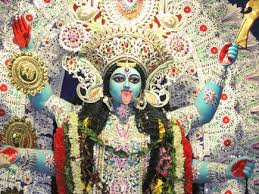भक्ति, अपने इष्ट के प्रति ऐसा समर्पण भाव है, जो हमारे मन में यह विश्वास जगाता है कि उसकी शरण में हम सदा शांति, सुचित्त, सुरक्षित व सदाचारी रहेंगे। साथ ही, संतुष्टि, तृप्ति, तटस्थता, आध्यात्मिक चेतना और अनंत सद्विचार के सुवासित पुष्प पर हम बरसेंगे और उसकी कृपा की निर्मल फुहार के तले हम एक-चित्त होकर यह बहुमूल्य जीवन जिएंगे।
एक दृष्टि से भक्ति का यह भाव और विश्वास वैयक्तिक है, अपना-अपना अलग-अलग। सामान्यत: भक्ति के उपक्रम हैं पूजा, जप, ध्यान, कीर्तन, निरंतर स्मरण व चिंतन, जो अपने मन में पवित्रता का भाव जगाते हैं और दुष्कर्मों से बचाते हैं।
यहां ‘भक्तियोग’ नामक गीता के बारहवें अध्याय की ओर पाठकों का ध्यान आकर्षित करना चाहता हूं। इस अध्याय में श्रीकृष्ण, भक्ति को वैयक्तिकता से आगे बढ़ाकर जिस खूबसूरती से सामाजिक सौमनस्य की ओर ले जाते हैं और अपने भक्तों को उस ओर प्रेरित करते हैं, वह अनुपम हैं। वे हर श्लोक के अंत में यह कहकर कि ‘ऐसा ही भक्त मुझे प्रिय है’ (मद्मक्त: स मे प्रिय:) अपने भक्तों के साथ ऐसा आत्मभाव जोड़ देते हैं, जो विभोर कर देता है और अपने प्रवाह में बहा ले जाता है।
श्रीकृष्ण कहते हैं कि केवल परमात्मा के पूजन, ध्यान, स्मरण में लगे रहना ही भक्त होने का लक्षण नहीं है। भक्त वह है, जो द्वेषरहित हो, दयालु हो, सुख-दुख में अविचलित रहे, बाहर-भीतर से शुद्ध, सर्वारंभ परित्यागी हो, चिंता व शोक से मुक्त हो, कामनारहित हो, शत्रु-मित्र, मान-अपमान तथा स्तुति-निंदा और सफलता-असफलता में समभाव रखने वाला हो, मननशील हो और हर परिस्थिति में खुश रहने का स्वभाव बनाए रखे। उससे न किसी को कोई कष्ट या असुविधा हो और वह किसी से असुविधा या उद्वेग का अनुभव करे।
संक्षेप में, भक्त को अपने इष्टदेव में अपने मन को लगाने के साथ-साथ तन-मन की पवित्रता, स्थिरता, सौम्यता, सहजता और उदारता विकसित करने का प्रयत्न करना चाहिए। इस अध्याय के सूत्र श्लोक हैं-
अद्वेष्टा सर्वभूतानां मैत्र: करुण एव च।
निर्ममो निरहंकार: समदु:खसुख: क्षमी।।१३।।
सन्तुष्ट: सततं योगी यतात्मा दृढनिश्चय:।
मय्यर्पित मनोबुद्धिर्यो मभ्दक्त: स मे प्रिय:।।१४।।
भावार्थ-
‘जो पुरुष सब प्राणियों में द्वेषभाव से रहित, स्वार्थरहित होकर सबको प्रेम करने वाला तथा सब पर समान रूप से दयाभाव रखता है, ममता और अहंकार से दूर है, दु:ख-सुख की प्राप्ति में सम व क्षमावान है तथा जो योगी निरंतर संतुष्ट मन:स्थिति में रहता है, मन व इन्द्रियों को अनुशासित रखता है तथा मुझमें दृढ़ श्रद्धा के साथ निरंतर मन लगाए रखता है, ऐसा मेरा भक्त मुझे बहुत प्रिय है।’
स्पष्ट है कि भक्त होने का मनोभाव रखने वाला व्यक्ति यदि उपरोक्त भाव धारा को ग्रहण करता है तो ही उसकी भक्ति सार्थक है, शांतिदायिनी और सामाजिक दृष्टि से भी कल्याणकारी है। ।। श्री कृष्णाय वयं नुमः ।।
Devotion is such a feeling of dedication towards our beloved, which awakens the belief in our mind that in his shelter we will always remain peaceful, well-informed, safe and virtuous. At the same time, we will shower upon the fragrant flower of satisfaction, contentment, neutrality, spiritual consciousness and infinite good thoughts and under the pure shower of His grace we will live this precious life single-mindedly.
From one point of view, this feeling of devotion and belief is individual, each one is different. Generally the activities of devotion are worship, chanting, meditation, kirtan, constant remembrance and contemplation, which awaken the feeling of purity in one’s mind and protect one from evil deeds.
Here I want to draw the attention of the readers towards the twelfth chapter of Gita named ‘Bhaktiyoga’. In this chapter, the beauty with which Shri Krishna takes devotion beyond individualism and takes it towards social harmony and inspires his devotees towards it, is incomparable. By saying at the end of every verse, ‘Such a devotee is dear to me’ (Madmaktah sa me priyaah), he adds such a feeling of self to his devotees, which makes them awestruck and takes them away in their flow.
Shri Krishna says that merely being engaged in worship, meditation and remembrance of God is not the sign of being a devotee. A devotee is one who is free from hatred, kind, unperturbed in happiness and sorrow, pure from within and outside, free from all worries and grief, free from desire, enemy-friend, respect-insult, praise-criticism and One should be equanimous between success and failure, be contemplative and maintain the nature of being happy in every situation. It should not cause any pain or discomfort to anyone and it should not cause discomfort or anxiety to anyone.
In short, the devotee should try to develop purity of body and mind, stability, gentleness, spontaneity and generosity along with concentrating his mind on his favorite deity. The sutra verses of this chapter are-
He is unhateful, friendly and compassionate to all beings. He is free from attachment and egoism and is equal in pain and pleasure and forgiving.
The Yogi, always satisfied, self-controlled, firm in determination. He whose mind and intellect are offered to Me and who is devoted to Me is dear to Me.
Meaning- ‘The man who is free from malice towards all living beings, selfless, loves everyone and has equal compassion for everyone, is away from attachment and ego, is equanimous and forgiving in the attainment of happiness and sorrow, and the yogi who is constantly satisfied. ‘My devotee who remains in a balanced state of mind, keeps his mind and senses disciplined and keeps his mind constantly focused on me with strong faith, is very dear to me.’
It is clear that if a person who has the attitude of being a devotee accepts the above sentiments then only his devotion is meaningful, peace giving and also beneficial from the social point of view. , Shri Krishnay Vayam Namah.

















